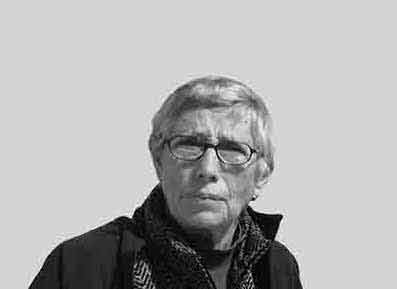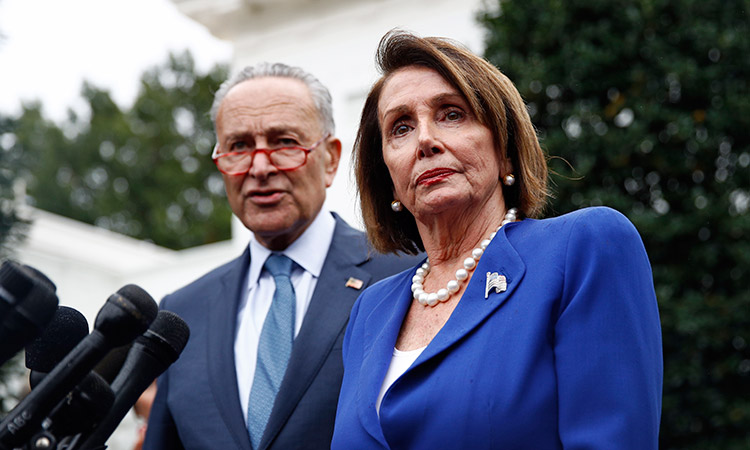Vladimir Putin has begun to reel in Tayyip Erdogan

Michael Jansen
The author, a well-respected observer of Middle East affairs, has three books on the Arab-Israeli conflict.

Members of the Syrian government forces sit atop a military vehicle. AFP
Ankara claims the vehicles belonged to a supply convoy bound for a Turkish army observation post established with Russia’s agreement in the vicinity of Khan Shaikhoun. However, this claim is not credible. There were 50 armoured vehicles, including tanks, and 300 Turkish soldiers in this assemblage.
Clearly it had nothing to do with delivering supplies. Moscow and Damascus argued Turkey had deployed such a large contingent to reinforce its faltering allies in Khan Shaikhoun. The air strike hit a pickup truck driven by a gunman from Faylaq al-Sham, an FSA faction, which was leading the column.
Second, Russian war planes played a key role in the battle for Khan Shaikhoun which ended with the withdrawal of insurgents from the town and neighbouring villages and the Syrian army capture of a stretch of the main highway between Idlib and Hama. The convoy was stranded north of Khan Shaikhoun.
Third, on Friday, again with Russian air cover, the Syrian army seized control from insurgents of the slice of territory in northern Hama province adjacent to Idlib and surrounded a Turkish army “observation” post near Khan Shaikhoun. This is one of a dozen Turkish posts, each manned by some 300 Turkish troops, established under the September 2018 de-confliction agreement with Russia.
For many months, Russia has accused Turkey of refusing to meet its commitments under the ceasefire and de-confliction agreement. These included enforcing the ceasefire, separating “rebels” and radicals operating in Idlib, clearing heavy weapons and radicals from a buffer zone around Idlib, and reopening the main highways between Aleppo and Damascus and Idlib and Hama.
Instead, after its “rebel” allies were defeated by al-Qaeda’s Hay’at Tahrir al-Sham, Turkey allowed this group to have a free hand in the province and to mount attacks on Syrian forces outside the province. Turkey also recruited fighters from radical groups into its surrogate National Liberation Front based on the Free Syrian Army and provided arms and other assistance to those fighting the government. Russian Foreign Minister Sergey Lavrov stated on August 20th, “Attacks by Hay’at Tahrir al-Sham militants in Idlib will be crushed. Turkey has been notified about that.” Al Monitor cites Moscow sources who said Turkey must evacuate southern military posts and transfer the soldiers manning them outside Idlib to the al-Bab-Jarablus area held by Turkey. Ankara is resisting Moscow’s pressure.
The plan being implemented by Damascus and Moscow involves driving “rebels” and radicals northward until the highways are back in government hands. The creation of a southern evacuation corridor for civilians is meant to deny insurgent fighters human shields and deflect Western calls for an end to the offensive due to the presence of tens of thousands of civilians. The Syrian army, backed by Russia, is expected to focus next on Maaret al-Numan and Jisr al-Shughur, two other strategic towns in Idlib.
Turkish President Recep Tayyip Erdogan, who has backed any faction ready to fight the Syrian government, is set (or has been summoned) to meet his Russian counterpart Vladimir Putin tomorrow in Moscow. Putin has put a positive protocolaire spin on this encounter rather than portraying it as a dressing down.
Erdogan is also poised to host Putin and Iranian President Hassan Rouhani on September 16th. Their aim is to reach some sort of agreement on an overall political solution. Due to the success of the Russian-backed Syrian army offensive so far, Ankara is in a weak position in negotiations.
Erdogan had pressed Moscow and Tehran to postpone a major army offensive in Idlib, allegedly, fearing its three million residents will try to flee across the border into Turkey, adding to the 3.6 million Syrian refugees already in that country. While refugees are definitely a problem, Ergodan’s real reason for trying to hold onto Idlib is imperial. His troops and allied militias already occupy pockets of land in north-central Syria as well as the district of Afrin and he simply wants more territory.
Motivated by the drive to seize more Syrian territory, Erdogan did not deliver on its commitments under the de-confliction accord. Russia allowed Turkey to get away with this behaviour for far too long, thereby making the situation in Idlib all the more untenable once this strategic province fell under the rule of Tahrir al-Sham.
Putin put Erdogan “on a long leash,” as they say. Now, Putin has begun to reel in Erdogan, show him he is not an independent actor in Syria. Russia has defended the Syrian government, a longstanding ally, because its collapse could fracture the country and further destabilise a region already destabilised due to the US destruction of the Baathist government in Iraq.
Russia has major interests in Syria. Moscow seeks to put the country back together again and secure stability, get rid of al-Qaeda, Daesh and their allies, and protect the naval and air force bases established by Russia during the war. The bases give Russia a foothold in the Eastern Mediterranean. As heir to the Soviet Union, which had a longstanding relationship with Syria, Russia wants to maintain old ties and to be seen as a reliable ally which is prepared to stick with an ally through difficult times. Russia also wants to play a leading role in Syrian reconstruction.
Putin has tried to balance his objectives and interests with maintaining good relations with Ankara but Erdogan’s schemes have not only made this impossible but also have upset Turkey’s Western allies, including its Nato partners. The Trump admini-stration has, like Putin, had to “manage” Erdogan. The US has put on hold his plan to invade and occupy Kurdish-held territory in north-eastern Syria which the US currently controls through its Kurdish proxies. Erdogan’s plans have been thwarted but not his ambitions.







